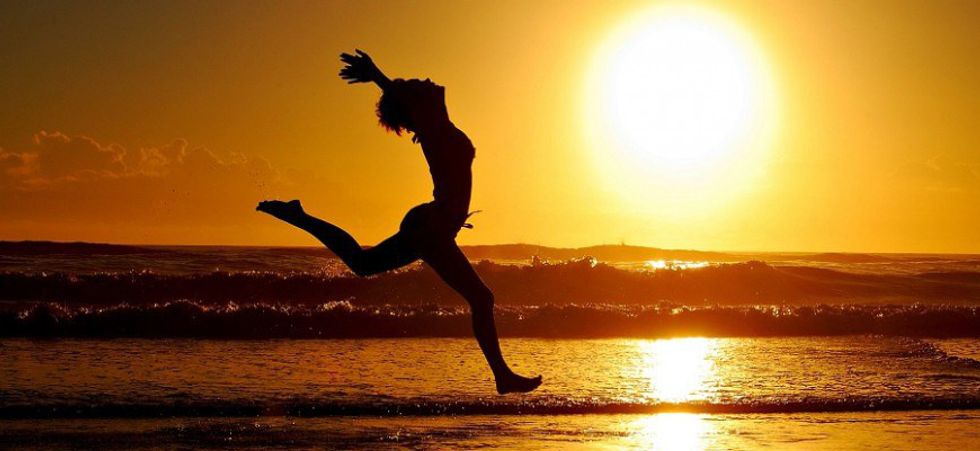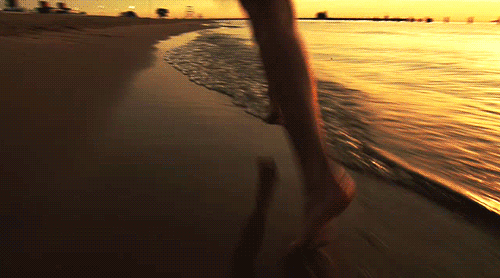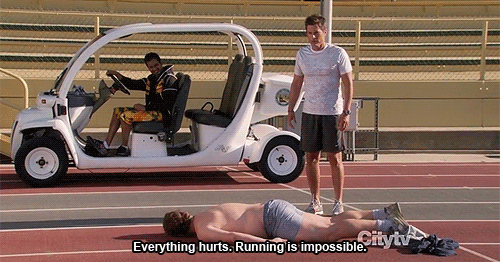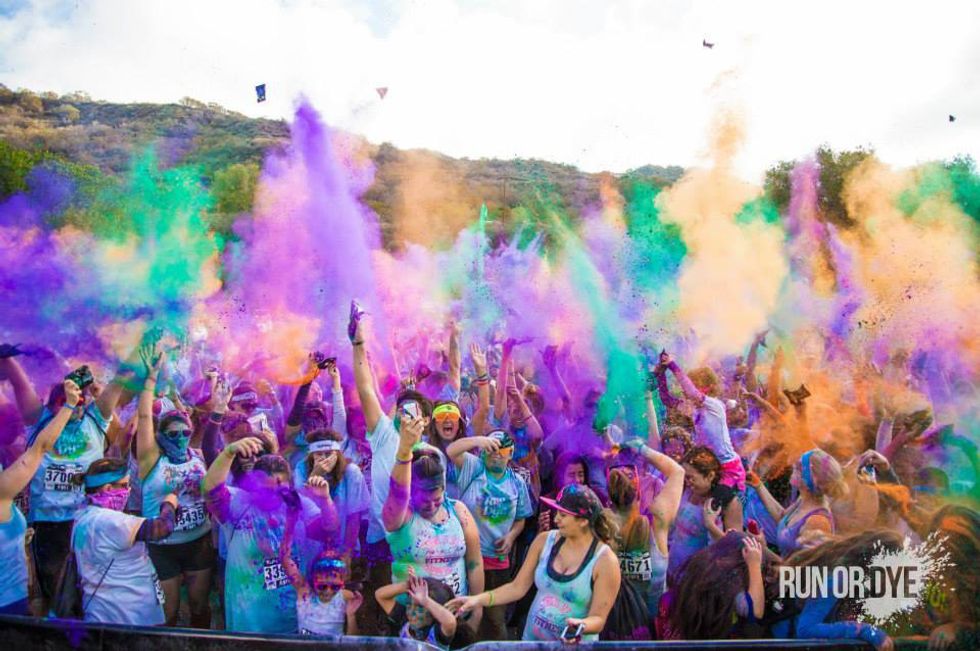Summer running. Whether you're training for cross country in the fall, a road race, a marathon, etc., or you just like to run when it's hot out, we all have to do it. Every runner, especially a competing runner, knows that summer training is crucial for success in the fall. Of course, running offers many other benefits, for competitors and non-competitors alike, such as weight-loss, improved fitness, and endorphins. Plus, it's a cheap and a fun way to pass time (yes, I said fun). However, when it comes to running in the summer specifically, there are are plenty of "good" aspects of it, as well as "not-so-good" ones. No matter what type of runner you are or why you're running, I think we can all agree on some of them here.
The good - More freedom to run
For the runners who are in school, summer means having the ability to run more freely during the morning and early afternoon. For those not in school, or who work, longer summer days means more time to run in daylight (Unless you dig night runs, but the warmer temperatures at night makes it easier to run at that time as well).
The not-so-good - The heat
There's almost no escaping the heat if you wish to run outside in the summer. However, some actually prefer the heat, and summer provides the best way for runners to accommodate their running and abilities to harsher, hotter weather conditions. So this might actually be a "good" for runners who enjoy running in higher temperatures.
One helpful tip for people who don't enjoy higher temps - the rule of thumb is to dress 10 degrees warmer than it actually is. So say the weather outside is 70 degrees fahrenheit - you want to dress like it's actually 80. Even though it might seem cooler outside in the beginning, you want to focus on how you'll feel mid-run, especially if you're going on a long run or working out.
The good - Less clothing
Personally, I prefer minimal clothing when I run. I warm up fairly easily, and feel like running gear such as pants or jackets bulk me up and slow me down. Even if I'm racing in 30-degree weather or below, I'll often choose not to wear tights or long sleeves under my uniform while it's still safe. For those who are in the same boat, the summer heat allows us to get away with very little clothing and still have a comfortable run (I know some of you are thinking about it, I highly recommend still wearing shorts of some kind).
The not-so-good - Harmful sun exposure
Warmer weather allows us to stay outside longer, but that also means longer sun exposure. In previous years, I thought only to reach for the sunscreen if I was going to the beach. However, to keep your body and skin healthy, it's very important to put sunscreen on your face and exposed skin when going for a run, no matter for how long. Broad-spectrum SPF 30+ is highly recommended, which is offered for many spray-on sport sunscreens.
Another important thing to remember is that even if it's not particularly hot out one day, you still must wear sunscreen. It's not the temperature outside that burns us, it's the UV index and ultraviolet rays. To all the track runners out there, that's why we still get sunburned at track meets that are chilly. Many weather apps include the current UV index, so it's important to know what is harmful. A UV index reading of 6-7 means high risk from unprotected sun exposure. It is recommended to reduce time in the sun from 10 a.m. to 4 p.m., so consider running in the morning or late afternoon/early evening if your schedule allows it.
The good - Beach running
Techincally, some of you could probably run on the beach whenever you please. However, if you're from the midwest like me, summer means that beaches are open and vacations are approaching, which provides a great opportunity to run on the beach (running on the sand it a very great leg workout), and jump in the water afterwards to cool-down.
The not-so-good - Dehydration
Through daily bodily functions and activity, the average person loses 3-4 liters of water. 1-2 of that comes from just breathing. Just think of all the water you're losing by sweating and running in the summer heat! It's essential to take extra care to stay hydrated in the summer, especially if your level of athletic activity is very high. Use a detailed hydration calculator to find out how much water you should be drinking, based off of your weight, age, gender, frequency of activity, and more.
The good - Road races, camps, and fun-runs
The spring and summer months provide many opportunities to make running a lot more fun and social. Road-races, camps, and fun-runs such as Run or Dye, the Color Run, and the Blacklight Run are just a few of the many exciting running activities out there.
The not-so-good - Runner's tan lines
It may be from your watch. It may be from your socks. Or it may be from everything (spandex, shorts,sports bra, tank top, sports tape, literally everything). Chances of getting them? 99.9 percent. Chances of getting rid of them? Little to none. (data taken from personal experience). If you're one of the few runners who doesn't have evidence or any trace of a runner's tan, please tell me what powers you possess.
The good - park bathrooms are finally open again
Need I say more?
Good luck with your summer running!



























